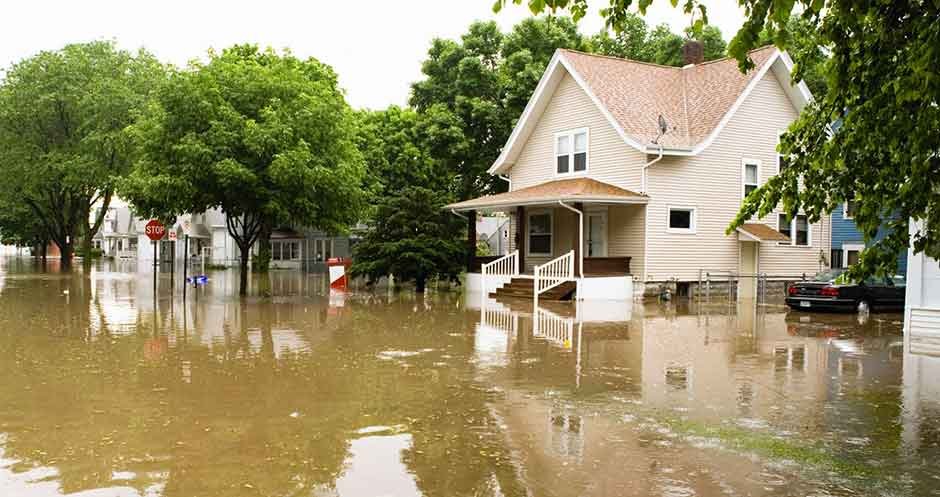Flooding in your home can be an incredibly damaging experience, leaving you with a huge mess to clean up and costly repairs.
There’s much to discuss as it pertains to proper maintenance schedules, waterproofing materials, and other steps that need to be taken before and after a flood occurs. So if you’re worried about your own residential elevator getting damaged due to flooding, keep reading.
Causes Of Home Flooding
When it comes to residential elevators, flooding can cause serious damage if left unchecked. Water is an incredibly powerful force and can wreak havoc on the electrical system of an elevator, resulting in costly repairs or even complete replacement of the system. Even if the water level isn’t high enough to enter the elevator shaft itself, it may still seep into other parts of the elevator such as wiring or motors. This is why it’s important to act quickly when dealing with flood waters in your home.
Risks To Residential Elevators
Due to the potential damage that can be caused by flooding, it is essential to take necessary precautions when it comes to residential elevators. If flood waters enter the elevator shaft or other parts of the system, it could lead to serious problems such as electrical shorts or even complete system failure. This is why it’s important to have a professional inspect your elevator if you experience flooding in your home.
Aside from flooding, there are other risks associated with residential elevators that homeowners should be aware of. These include power outages, mechanical failures, and improper installation of components. All of these issues can lead to expensive repairs or even the replacement of the entire system and should be addressed immediately if they occur. Regular maintenance and inspection of home elevators are recommended in order to ensure their continued safe operation.
Assessing The Damage
When assessing any potential damage to a residential elevator due to flooding, it is important to take into account the age of the system and its components. If the elevator is relatively new and has been properly maintained, then there may be less risk of damage being caused by water exposure. However, if the system is older or has not been regularly inspected, then it is possible that moisture could have caused some deterioration over time. In this case, it will be necessary to have a professional inspect the system to determine the extent of any water damage and what steps need to be taken for repair or replacement.
Flood waters can contain hazardous materials that can cause corrosion or other damage to electrical components within your residential elevator. It is essential to have these components thoroughly checked by a certified technician in order to ensure they are still safe and functioning correctly. If there is any standing water in your home after a flood, make sure all power sources are turned off before attempting any repairs on your elevator system.
Repairs And Maintenance
If your residential elevator has been damaged due to flooding, it is important to take the necessary steps for repairs and maintenance as soon as possible. A qualified technician should be brought in to inspect the system and assess the extent of any water damage. This inspection may include checking for corrosion or other signs of wear and tear on electrical components, as well as any structural damage that may have occurred due to the flooding. Once the issue has been identified, they can suggest appropriate repairs or replacements that will ensure the safety of your family.
Prevention Measures
To avoid future damage to a residential elevator due to flooding, it is important to take preventive measures. Checking the integrity of the weather seals around all doorways and windows can help prevent water from entering your home in the first place. Doing this regularly will ensure that any gaps or tears are fixed before they can cause major damage. Keeping gutters, downspouts, and drains clean and clear of debris can also reduce the risk of water pooling around your home’s foundation.
Another way to protect your residential elevator from flooding is to install a sump pump and/or back-up generator system. These systems are designed to detect excess moisture and either pump it away or provide power for operation in case of an emergency. Investing in these safety features now can save you time and money in the long run if you ever experience a flood again in your home.
It is also wise to keep an eye on local weather forecasts so that you can be prepared for potential storms or floods before they occur. This will give you more time to move any valuable items out of harm’s way and ensure that your residential elevator has been properly shut off should there be any chance of water entering your home.
Insurance Considerations
When it comes to protecting your residential elevator from flooding, it is also important to consider insurance coverage. Homeowner’s insurance may cover certain types of water damage, but it’s important to check with your provider to make sure you are adequately covered in the event of a flood. It’s also worth noting that some policies may require additional riders for certain areas of the home, including elevators.
If you live in an area where floods are common, or if your home has experienced flooding in the past, it might be worth considering purchasing a separate flood insurance policy. This type of policy can provide additional protection against rising waters and help cover costs associated with repairing any damage caused by a flood.
By understanding the risks posed by flooding and taking steps to protect your residential elevator, you can help preserve its longevity and enjoy many years of safe and reliable service.






